Week 9: Zephaniah
Objective:
-
The Great Day of the Lord
-
A Call to Repentance
-
Judgment on Nations
-
The Wickedness of Jerusalem
-
A Faithful Remnant
-
Joy in God’s Faithfulness
Resources:
- Fr Tadros Y Malaty Commentary
- Catena Bible Commentary
- Fr Dawoud Lamie Bible study (Arabic)
- Minor Prophets SUSCOPTS
Activity for every week: Can you recite the 12 minor prophets?
Reading:
- Zephaniah 1
- Zephaniah 2:1-3
- Zephaniah 3:8-20
Key verse(s):
"At that time I will bring you back, Even at the time, I gather you" Zephaniah 3:20
NOTE TO SERVANT:
-
Please plan to ask and review these questions every week:
- Who are the minor prophets? Can you recite them?
- The theme for last week's minor prophet
- Highlight Messianic prophecy
- Who are the minor prophets? Can you recite them?
Minor Prophets introduction:
-
The Major and Minor Prophet division of the Holy Bible does not denote the importance or rank of the writing prophets, but the length of the Holy Books which bear their prophecies.
- Ex: Jonah 4 chapters - Isaiah 66 chapters
- There are 12 minor prophets and 4 major prophets (5 books including Lamentations)
- In the Tanakh (Hebrew Bible), all these books were listed under "prophets". In the Septuagint and Vulgate translations, this classification of major and minor was mentioned.
- The prophet in the OT was someone who passed God's message to the people. A prophet in the NT is also someone who passes God's message or news (God's love and salvation for all mankind).
- In the OT, there were many prophets (Moses, David, Elijah, Elisha, etc.), but when we refer to the "Prophets", we refer to the ones who recorded their prophecy.
- All prophecies had one goal: Repentance!
- Recorded prophecies were split into three groups: Before, during, and after the exile.
- Before: Repent so God doesn't bring the exile
- During: Repent so God can end the exile and take us back to our land
- After: Repent because the Messiah is coming
- The books of the prophets are rich with Messianic prophecies. Our Lord fulfilled all.
- The meaning of the names of the prophets is usually the message of their writings.
- The prophetic books always start with a strong tough message and then end with a joyful promising message.
- All books have different themes. All books have the same message (repentance).
-
|
Minor Prophets |
||
|
Before Assyrian Captivity Directed to the North Kingdom |
After Assyrian and before Babylonian captivities Directed to the South Kingdom |
After Captivity |
|
1. Hosea 2. Joel 3. Amos 4. Obadiah (Edom) 5. Jonah |
6. Micah 7. Nahum (Nineveh) 8. Habakkuk 9. Zephaniah |
10. Haggai 11. Zechariah 12. Malachi |
Comments:
Theme of Zephaniah: The judgment and blessing of Jerusalem
Messianic Prophecy: The Lord's sacrifice (1:7)
- Zephaniah means "God hides"
- Zephaniah was a priest from the family of King Hezekiah
- Normally the genealogy of a prophet is traced no further than his father. Zephaniah, however, traces his ancestry back four generations to demonstrate his royal lineage as the great-great-grandson of King Hezekiah (1:1).
- Thus, he was a distant relative of King Josiah and those to whom he addresses his prophecy.
- Zephaniah lived at the time of Jeremiah and the destruction of the destruction of the Temple
- Therefore the book sends a final warning to the people before the Babylonian Exile
- The book focuses on “The Day of the Lord” which is mentioned 7 times
- This refers to the destruction of Jerusalem as a result of sin
- Chapter 1:
- V.1: Shows the genealogy of Zephaniah and the time of his prophecy during the reign of King Josiah
- V.7-9:
- "Be silent in the presence of the Lord God" because the people are waiting for God to see what He will do
- V. 7: Refers to the NT. A man usually prepares the sacrifice. But this time, God Himself will prepare the sacrifice. This means that God Himself will offer Himself as a sacrifice on behalf of His people
- God made a Holy sacrifice. His people are not worthy, therefore he will "sanctify" His people. Invited them = sanctified them. They can not be invited without sanctification
- Very similar to the Parable of the Wedding Feast (Matt. 22 & Lk. 14)
- The "clothed with foreign apparel" means not clothed with Baptism. Not clothed with Christ and the Grace of the NT. They will be cast out. They want to take a shortcut and not go through baptism (they want to leap over) (V.9)
- "Be silent in the presence of the Lord God" because the people are waiting for God to see what He will do
- Chapter 2:
- Talks about the people's repentance
- He called them an "undesirable nation" as they needed to repent to be desired
- "Seek the Lord, all you meek of the earth" This Invitation for everyone to go to God
- "Seek righteousness, seek humility" so that you may be saved in the day of the Lord's anger AKA be saved and accepted by God.
- Chapter 3:
- Praise regarding the joy of the NT (V.14-20)
- "Daughter of Zion" is the Church of the NT
- God removed the judgments and defeated Satan (V.15)
Review/recap questions:
**Servant may add more questions
- Who was king at the time of Zephaniah?
- What sacrifice would the Lord prepare and who are His guests?
- Describe the Day of the Lord.
- What does the prophet urge the nation to do?
- Why should the faithful of Jerusalem rejoice?
Homework:
**Servant may add more questions
- God will punish those who fill their master’s house with:
a) money b) lies c) fruits d) violence - (Zephaniah 1:14) The great day of the LORD is near; it is near and hastens quickly. The noise of the Day of the LORD is bitter; there the mighty men shall cry out. Who said this?
- What will the people do with a pure language?
- (Zephaniah 3:17) "The LORD your God is in your midst, the Mighty One, will save; He will rejoice over you with gladness, He will quiet you with His love, He will rejoice over you with singing." What does this mean?

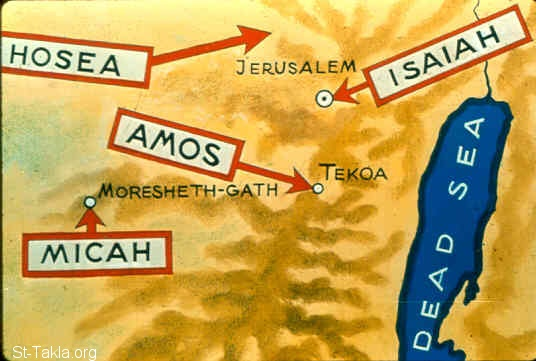
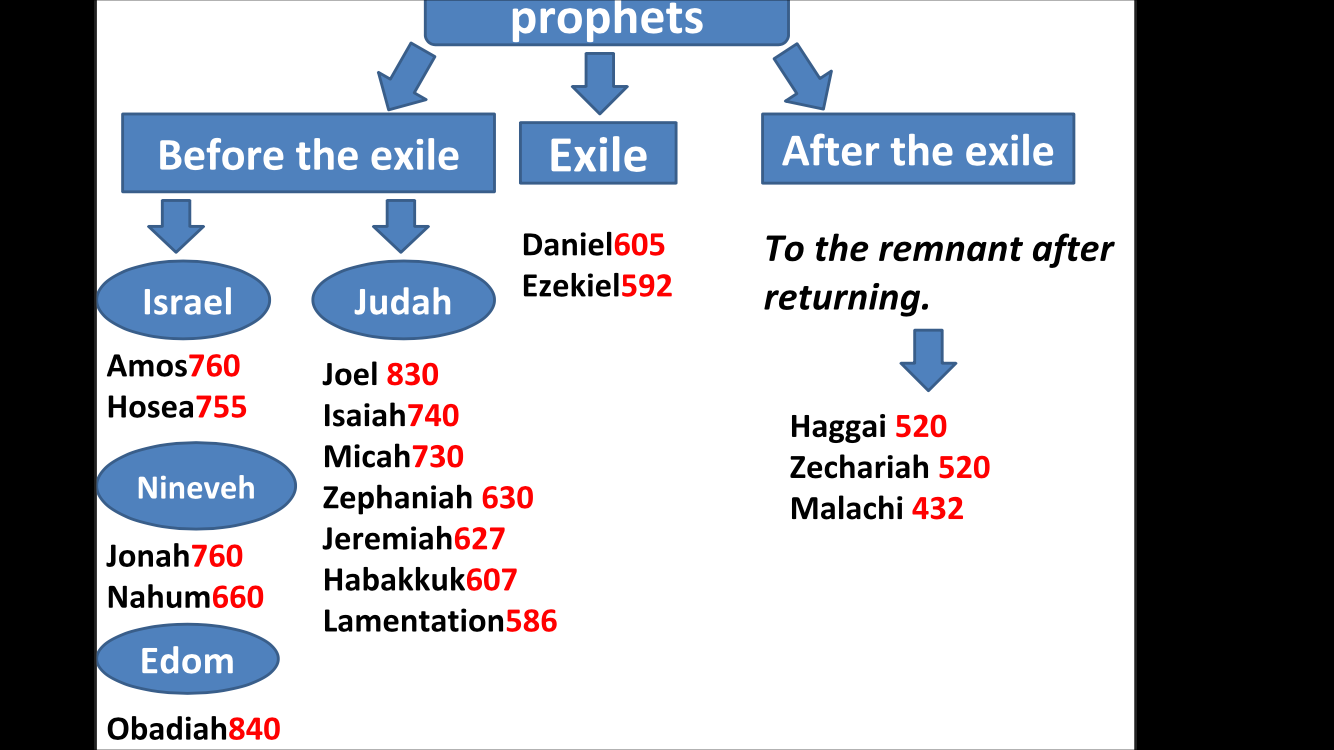
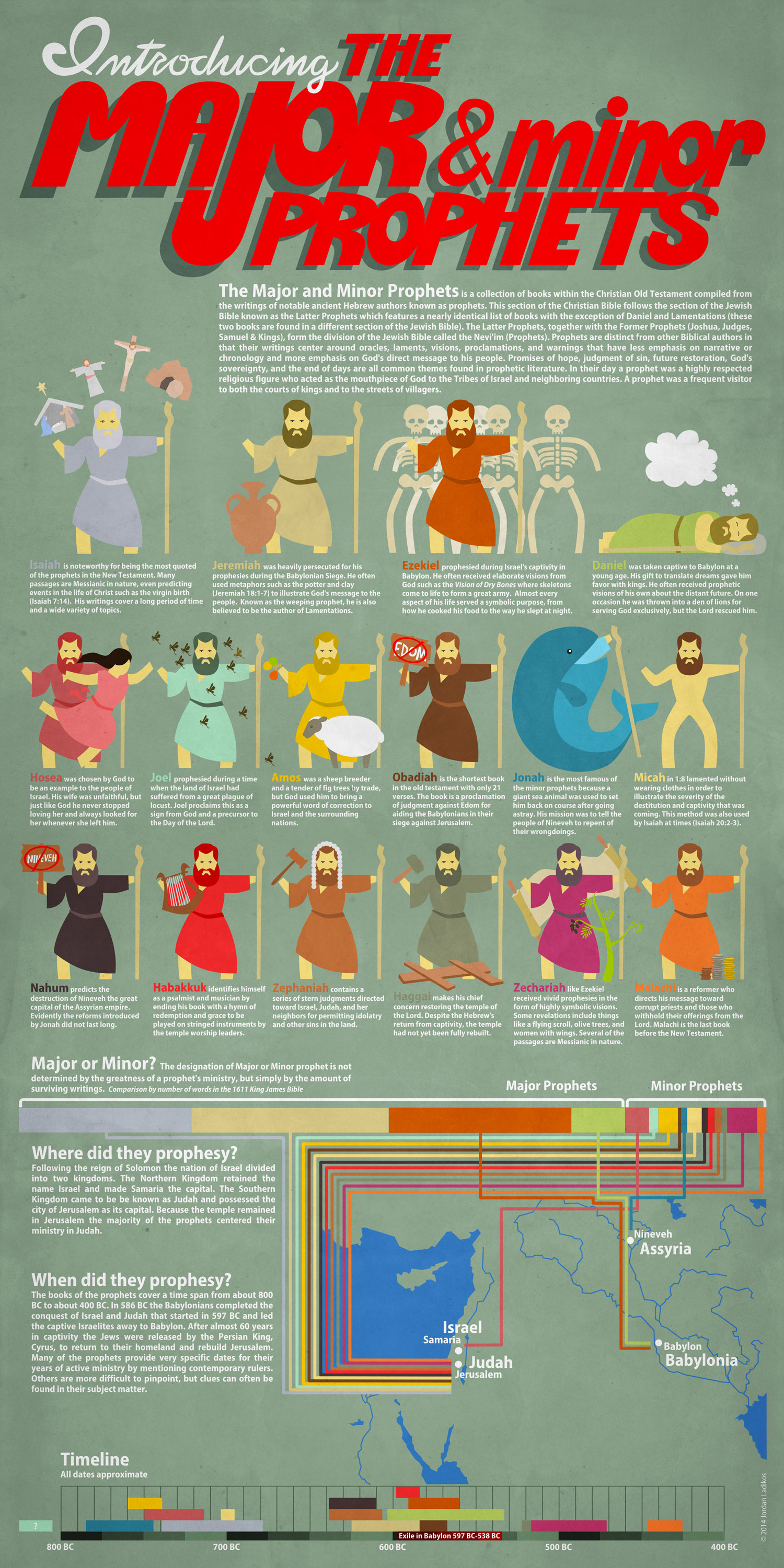
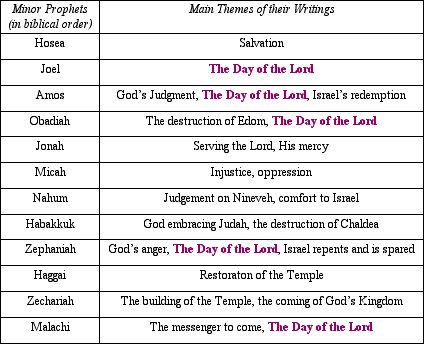
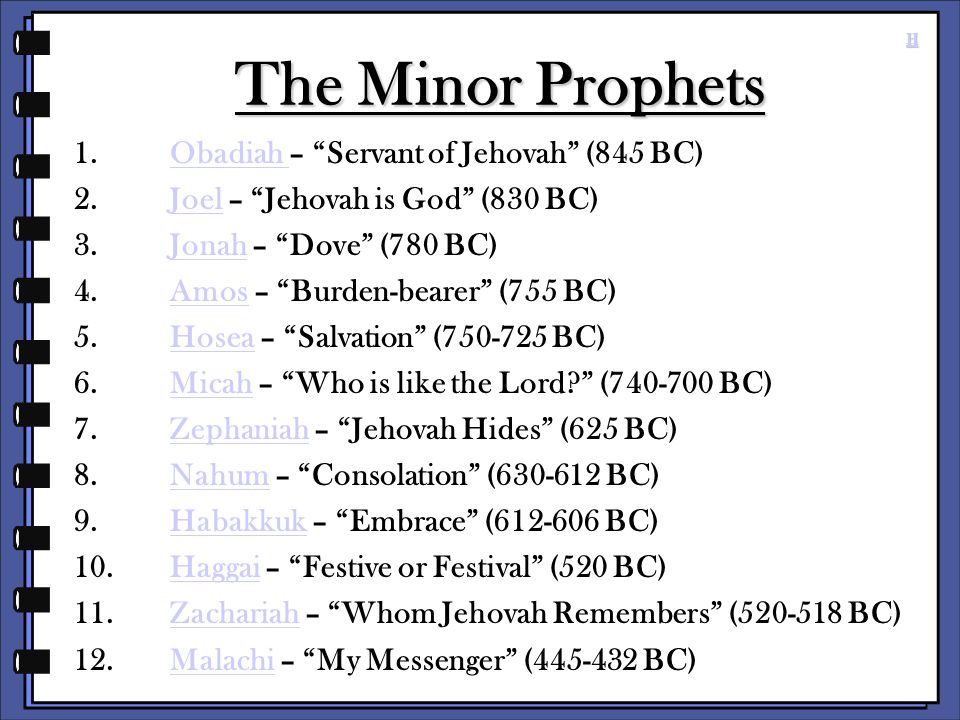
No comments to display
No comments to display